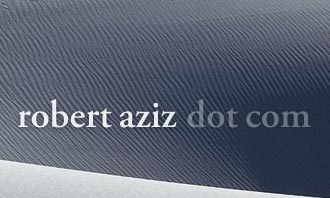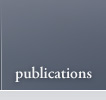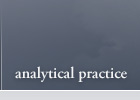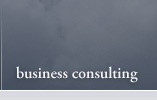Dr. Aziz on Huffington Post
Recent journal entries
- A True Fountain of Youth – Dr. Aziz on The Times of India, Speaking Tree
- New Year's Eve: Making It A Genuine First Step
- Making It More Than Your Typical Holiday – Dr. Aziz on The Times of India, Speaking Tree
- Finding Compassion: From an Ideal to Experiential Knowing – Dr. Aziz on The Times of India, Speaking Tree
journal categories
- Analytical Practice
- Business Consulting
- Publications
search robert aziz dot com
journal category: Publications
A True Fountain of Youth – Dr. Aziz on The Times of India, Speaking Tree
by robert aziz
The quest for eternal youthfulness has captivated humanity for centuries. World mythologies, the arts, not to speak of actual historical events, provide more than glimpses into our preoccupation with this problem. Recently this quest has taken an altogether new direction with ever-increasing numbers of people seeking salvation in the now burgeoning industry of pharmaceutical and surgical anti-aging interventions. Shocking as this may be, especially given the surreal and at times lethal consequences of these interventions, I do not regard them as uniquely condemnable, since throughout history those looking to enhance their physical beauty have subjected themselves to comparable, if not more severe ordeals. What I would say about them, however, is that even when optimal aesthetic effects are achieved, such results in no way correlate with what I have in mind in speaking of youthfulness. If the Fountain of Youth were to mean anything, I could only imagine that it would have to offer us more than a mere physical upgrade.
New Year's Eve: Making It A Genuine First Step
by robert aziz
Revised by Dr. Robert Aziz from his 2009 Huffington Post article of the same title.
It is a curious fact that New Year's Eve is synonymous with getting wasted. How do I define wasted? Technically put, it would denote party-related excess that leaves one feeling like crap (ill and depleted) the next day.
Making It More Than Your Typical Holiday – Dr. Aziz on The Times of India, Speaking Tree
by robert aziz
Over the years when I have had the chance to take a holiday from the very demanding schedule of my professional work I have used that time in many different ways. I have, for instance, visited with friends I would not often see, traveled, spent time researching and writing, and even worked on projects around my home. Most commonly, however, a holiday has involved time with family in the isolation of heavily wooded lake districts.
Finding Compassion: From an Ideal to Experiential Knowing – Dr. Aziz on The Times of India, Speaking Tree
by robert aziz
The way of nature is the way of process; it is the way of spontaneous, self–organizing process. The way of process is the way of descent. To align with the way of nature, by which I also mean to align with unfolding Reality, is not, therefore, to rise above and impose upon, rather, it is to descend into and move with. It is to descend into and move with nature's self–organizing process as it discloses itself to us, both inwardly and outwardly.
Meaningful Suffering versus Meaningless Suffering – Dr. Aziz on The Times of India, Speaking Tree
by robert aziz
At the very heart of the developmental model outlined in my work The Syndetic Paradigm: The Untrodden Path Beyond Freud and Jung is the ethical challenge of moving from meaningless suffering to meaningful suffering. Of course such a progression does not appeal to everyone, as many would prefer the 'work' to benefit their lives to the extent they would be without suffering altogether.
the times of india invites dr. aziz to join the speaking tree
by robert aziz
Dr. Aziz accepted with gratitude an invitation from The Times of India to join as a 'Master' their global spiritual networking website, The Speaking Tree.
Launched in 2010, The Speaking Tree website has 90,000 registered participants and receives over 1,000,000 monthly page views. Featured articles from The Speaking Tree are presented in print in The Times of India both daily on the Edit Page (The Times of Ideas) and in their weekly publication The Speaking Tree Sunday. The World Association of Newspapers lists The Times of India as the largest selling English language newspaper in the world.
Please sign up to 'Follow' Dr. Aziz on The Times of India, The Speaking Tree so that you can contribute your own valuable comments to this exceptional, global spiritual dialogue.
dr. aziz and the syndetic paradigm go to india
by robert aziz
Two weeks ago in The Times of India, Speaking Tree, Anant Nadkarni, Vice-President of Group Corporate Sustainability of the Tata Group, introduced The Syndetic Paradigm: The Untrodden Path Beyond Freud and Jung to the people of India by way of a most thought-provoking review of that work titled, A New Approach to Leadership. "Today," Anant Nadkarni would have us understand, drawing on his own executive observations in leading the social and environmental related initiatives for major Tata companies through a network of nearly 50 CEOs and 200 champions, "we particularly need to learn how our leaders might progress beyond power dynamics, a progression, as Aziz puts it, from ego control (narrow egocentric action) to ego strength (facilitation of the life process, co-creator). Business management, economics and finance has recently touched upon the importance of engaging triple (economic, social and environmental) or even multiple contexts in decision making – a development that is envisaged to be represented in the future in the presentation of integrated forms of business reporting."
occupy wall street movement: 'it's about the process, stupid'
by robert aziz
Given our human bias not to take seriously anything that is not served up to us in the form of absolutes, it is beyond annoying that the in-your-face presence of the OWSM would have the audacity (interesting word) not to reduce what it is they are actually after to a veritable grocery list of demands. The audacity of their hope (interesting phrase) is that we might get the critical point that "democracy," as I wrote almost three years ago in my HuffPost blog entry of October 20, 2008, "is not a commodity of fixed value; rather, it is a process and as such something we must work each and every day to secure. To uphold and improve democracy's process is, therefore, to uphold and improve democracy itself. The more functional the process, the more authentic the democracy."
why power corrupts and absolute power corrupts absolutely
by robert aziz
The option to impose one's will on another is an option that position alone wrongly affords all too many individuals. Indeed this option to impose on, rather than work with, this option to impose on without any regard whatsoever for due process, becomes, in the hands of most, a license to harm, if not destroy the careers and lives of others. People do, after all, inexplicably lose their jobs; careers do get gently nudged onto the rocks; professional marginalization does occur; first-rate organizational, social and political initiatives do encounter untenable resistance, if they are not obstructed altogether; minority oppression does occur; individual whim decimates cultures and destroys countries.
dr. aziz's foreword to sumi-e nudes: the integrity of a single stroke
by robert aziz
For Marc Bauer-Maison, 2009 proved to be a fateful turning point for his then well-established career of some twenty-four years as a watercolourist. While on a trip to his native France, from his residence in Canada, Bauer-Maison took the opportunity to attend a class on the nude being offered by the renowned, Sumi-e master painter, Alain Bonnefoit. There can be no doubt that when Bauer-Maison walked into Bonnefoit's class in Valence he knew he was in the presence of a great artist. What Bauer-Maison didn't know, however, was the extent to which his twenty-four year career as a watercolourist had prepared him for this moment. What he didn't know was just how ‘ripe' he was, to use a Zen term, for the experience of the teaching he was about to receive from this master painter. Far more than he could have even begun to imagine at that time, he, the student, was ready and the master had now appeared.
Dr. Aziz Attending The Synchro Summit at Yale University
by robert aziz
This summer I received an invitation to be a key participant in the upcoming Synchro Summit at Yale University. The October 2010 Synchro Summit at Yale is a most interesting and important initiative so it was with gratitude that I have accepted this invitation.
dr. aziz's foreword to synchronicity: multiple perspectives on meaningful coincidence
by robert aziz
I am most grateful to Dr. Lance Storm for having invited me to contribute the Foreword to this impressive compilation of papers on synchronicity that are here brought together in book form under his direction and editorship. It is indeed an honour to be a participant in a project of this scope and significance.
dr. aziz on huffington post
by robert aziz
I would like to invite all visitors to robert aziz dot com to follow the links in the sidebar to The Huffington Post, where they can read my blog postings.
To be notified by email of my future postings on The Huffington Post, click here to subscribe.
democracy and self-organization: the change of which barack obama speaks
by robert aziz
Something that is happening in America today is awakening unprecedented social and political sentiments, not just within that country, but within the global community as a whole, especially amongst democratic nations. Of course I am referring to the candidacy of Senator Barack Obama for President of the United States.
will I be able to read it? or intimidations of the next step
by robert aziz
According to psychoanalytical theory, a parapraxis or Freudian slip, as it is more commonly termed, denotes an error in speech or action, which although seemingly innocent betrays an unconscious anxiety or problem. Given my own clinical observations in this regard, I have not treated as insignificant the inadvertent conversion by certain individuals with whom I have spoken of the title of my journal entry intimations of the next step to intimidations of the next step. (I should say that I am being as careful as I possibly can at this moment in the spelling of these two words.)
Publications Section Update
by robert aziz
Certain internet browsers were unable to access the publications section in the top menu bar of robertaziz.com. If this was your experience please return to publications as this problem is now resolved.
The Police and Synchronicity: All Access
by robert aziz
Twenty-four years ago in 1983—when I had completed in the form of my MA thesis my first serious work on the then highly esoteric subject of synchronicity and was about to embark on another stage of research on that same subject that would ultimately take the form of a book-length manuscript—I was watching a new music show on TV when it was announced the soon-to-be-released album by The Police would be titled Synchronocity [sic]. Of course it would not take long before millions worldwide—the album went 8xplatinum in the US alone—would know that the title of that new release by The Police was in fact Synchronicity.
Searching for Reality Beyond the 'Wow' Moment
by robert aziz
In reading the case examples presented in The Syndetic Paradigm: The Untrodden Path Beyond Freud and Jung there will no doubt be some very powerful 'wow' moments. I myself certainly had a few when I was writing The Syndetic Paradigm. Such moments inspire and as much as I have at times enjoyed experiencing them with others I am now less inclined to do so. Why? Because all too often we attach to these wow moments in a manner that causes us to stop short of seeing that of which they are but an expression. All too often what has the potential to serve as a point of access to the depth meaning of self-organizing Reality becomes a mere form of entertainment.
Intimations of the Next Step
by robert aziz
In the process of preparing material for this website I was led back to journal reviews of my first book C. G. Jung's Psychology of Religion and Synchronicity I had not read for many years, some not since the time of that book's appearance 17 years ago. As I made my way through the folder holding those papers I have to say that I was genuinely surprised that beyond crediting me with completing Jung's thinking on synchronicity and the psychology of religion several reviewer comments could acknowledge the necessity of the next step—the necessity of this my most recent work The Syndetic Paradigm: The Untrodden Path Beyond Freud and Jung.






